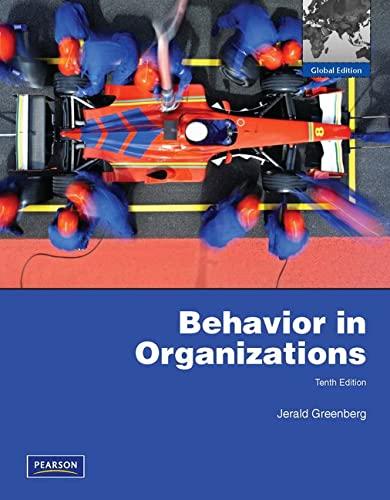Any training course on the essentials of customer service will advise you always to smile at customers
Question:
Any training course on the essentials of customer service will advise you always to smile at customers and to make eye contact with them. In fact, it seems so commonsensical as to not need repeating. Little would you imagine, therefore, that doing precisely this actually would cause problems for some supermarket clerks! Nonetheless, this is precisely what happened to a dozen female employees at a Safeway supermarket in Martinez, California. The women claimed that their eye contact and smiles elicited unwanted attention from some male shoppers who mistook these friendly gestures as acts of flirting. Some clerks even had to resort to hiding in the store to escape customers who were hungry for services that weren’t for sale. A produce clerk at one northern California store was even followed to her car and propositioned by a supermarket shopper who got the wrong idea.
The root of the problem, argue the 12 clerks who filed grievances with the United Food and Commercial Workers Union, is Safeway’s “Superior Service” policy, which explicitly requires them to smile at customers and to maintain three seconds of eye contact with each one. It also expects clerks to anticipate customers’ needs, to help them find items for which they’re looking, and to call them by name if paying by check or credit card.
This policy was in place for five years before Safeway officials started enforcing it by using undercover shoppers to spot violators, who were sent letters warning them of the negative evaluations and disciplinary measures (even firing!) that could result from failing to comply. Soon thereafter, the incidents of customer harassment began.
The union is seeking a modified policy that gives workers some discretion in the matter, allowing them to choose whether or not to maintain eye contact or to refuse to carry a customer’s bags to his car at night.
From its headquarters in Pleasanton, California, Safeway officials acknowledged that although some customers get out of hand, this is not the result of their policy. They add that not one of the store’s employees, currently about 200,000, ever has been fired for failing to be friendly.
However, 100 have been sent to a daylong remedial training class on friendliness, what they call “Smile School.” This, says Safeway spokesperson Debra Lambert, “is not about discipline. It’s about treating customers well and training employees to do that.” Think about this when you complain about that surly clerk who doesn’t even look up to acknowledge you the next time, you’re in your local supermarket looking for laundry detergent.
Questions for Discussion
1. How, specifically, is the process of attribution illustrated in this case?
2. What do you suppose is being done to help train people to be friendlier toward customers? In other words, what would you imagine goes on in Safeway’s “Smile School”?
3. Describe what you believe might be the progressive discipline steps outlined in the warning letter sent to unfriendly Safeway clerks.
Step by Step Answer:






